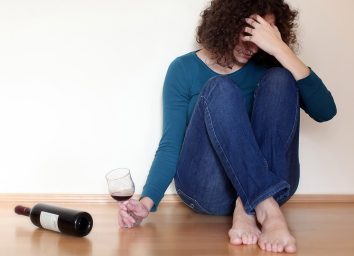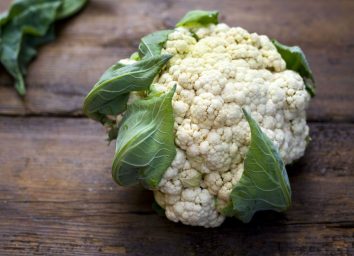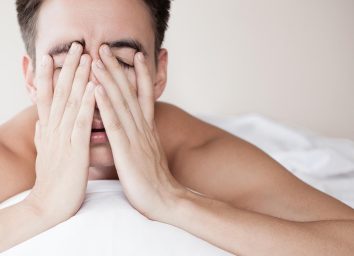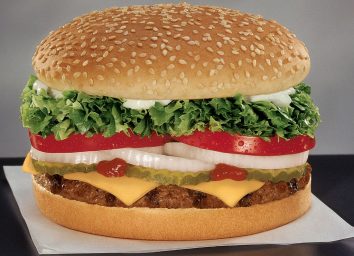18 Worst Things to Do If You Have a Hangover
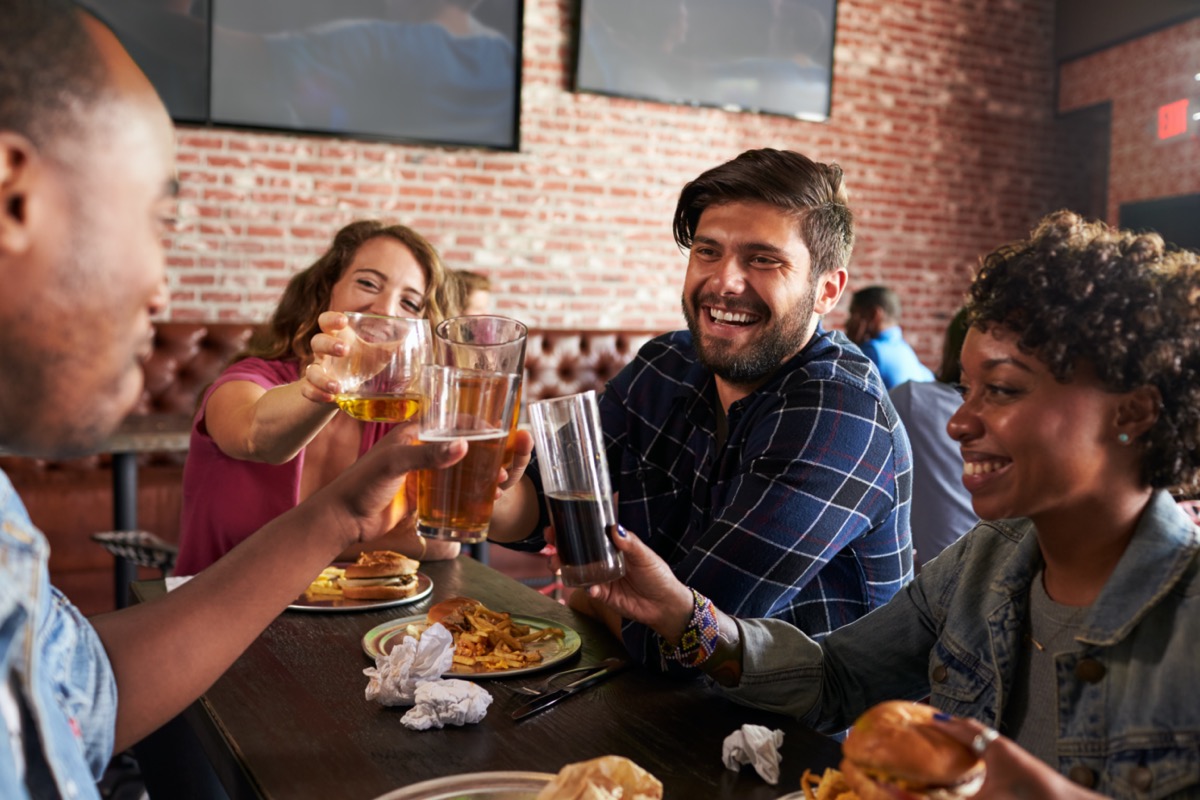
Many people like drinking alcohol, but nobody likes having a hangover. A hangover happens when you indulge in too much alcohol and typically the next morning, your body becomes dehydrated. Categorized by super unpleasant symptoms such as vomiting, fatigue and weakness, excessive thirst, dry mouth, headaches, muscle aches, poor or interrupted sleep, increased sensitivity to light and sound, shakiness, mood disturbances, lack of concentration, and rapid heartbeat, the Mayo Clinic says the more you drink, the more likely you are to develop a hangover the next day. And there’s a chance you’re most likely doing things to magically cure your hangover that are simply making you feel worse.
Fortunately, hangover symptoms go away on their own. If they lasted forever, nobody would probably ever drink again. (Eh, maybe.) And while many myths out there cite the wonders that solutions like coffee and showers and sleep can work, most often, the only things that really combat a hangover are water, electrolytes, and time.
Never want to feel the unpleasantness that is a hangover ever again? It’s important to know what you can do to help mitigate (or prevent!) a hangover and also know which actions exacerbate hangovers. You know, so you can avoid them at all costs.
Keep reading for 18 of the worst things to do if you have a hangover.
Taking Acetaminophen
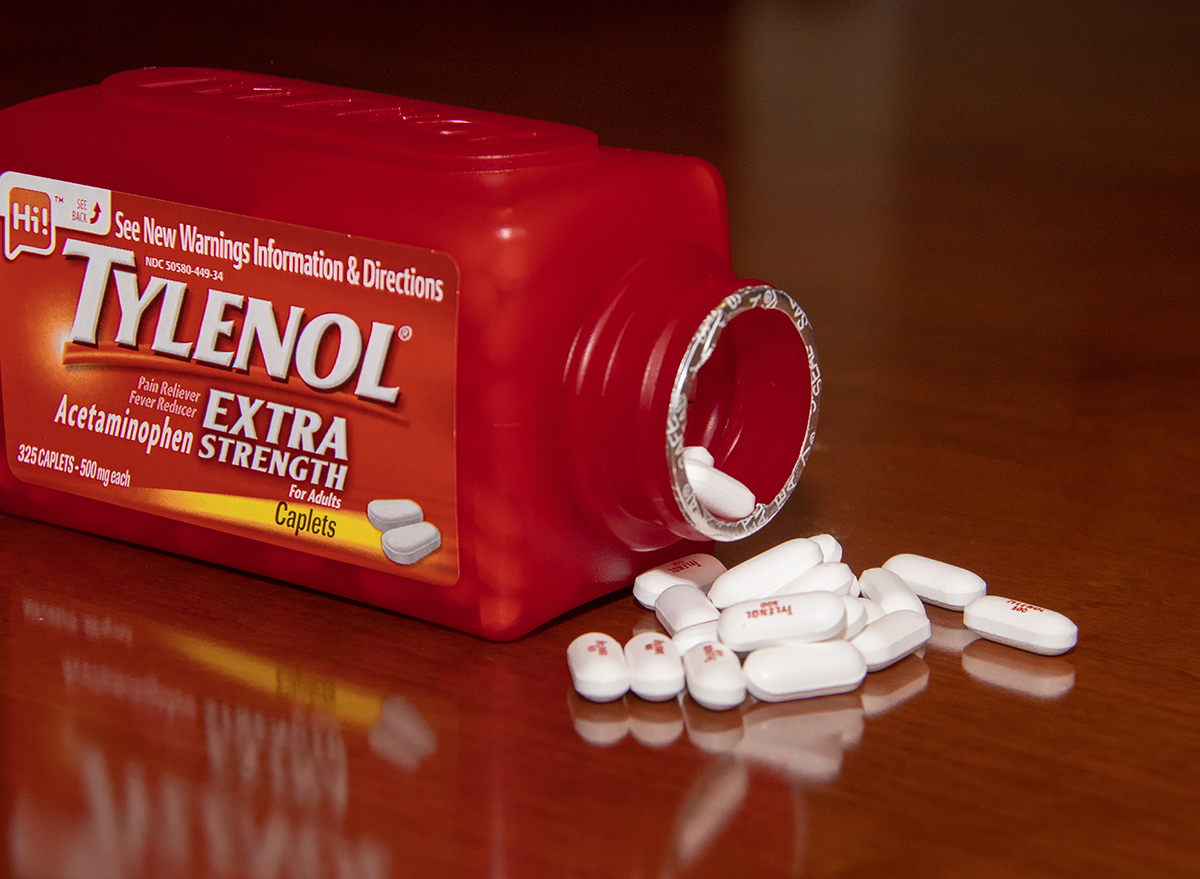
Wait, what?! But the first thing you do when you wake up after a crazy night on the town is reach for the pill bottle, right? That’s fine—as long as it’s not acetaminophen.
“Do not take Tylenol when you are hungover,” says Michael Betancourt, owner, operator, and manager at hydration therapy company Vida-Flo in Hoboken, New Jersey. “Acetaminophen and alcohol don’t do well together. [There’s] increased risk for liver damage and it slows the metabolism process, which will prolong the effects of alcohol overindulgence.”
In short, only rely on Tylenol if you want to feel hungover longer. And no one wants to do that, right?
Having a cup of coffee
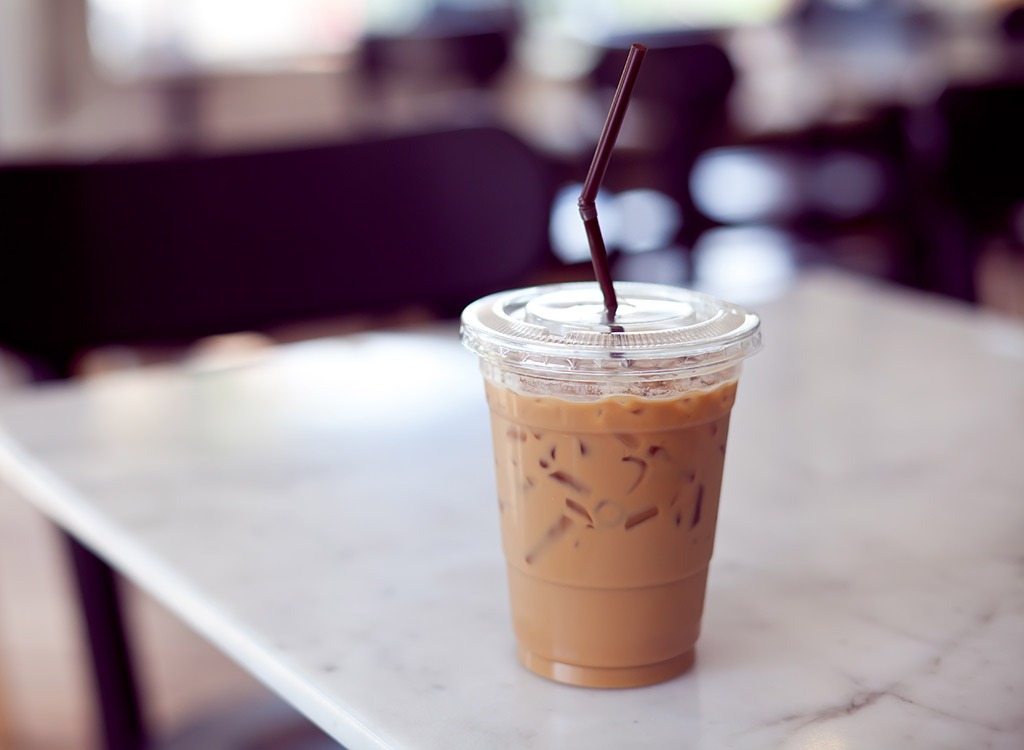
Nope. Do not have a cup of coffee. In fact, avoid any drinks high in caffeine, as this could cause worsen symptoms associated with hangovers and even increase symptoms of mental illness such as anxiety, depression, and mood disorders.
“Stay away from caffeine,” says Betancourt. “Nausea and jitters are common side effects associated with hangovers, and caffeine will only increase this.”
Skipping breakfast
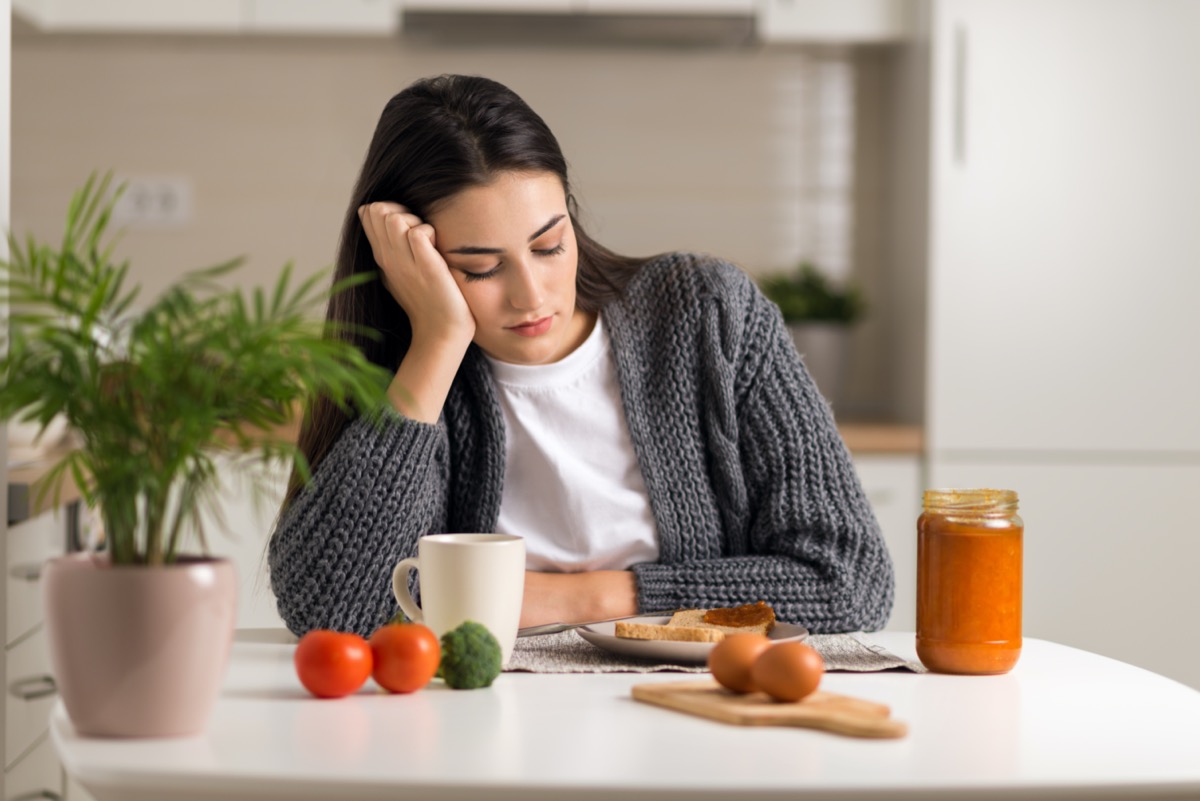
“Breakfast really is the most important meal of the day, especially when you have a hangover,” says holistic nutritionist Kyria Marie, MA, NC, CHD, RYT, founder of Kyria Health. “Eating a breakfast full of healthy fats and proteins helps to stabilize blood sugar levels.”
Believe it or not, skipping breakfast may make you feel sicker longer, especially because food and nutrients absorb alcohol.
“Consider a breakfast that includes eggs, small amounts of high-quality sausage or bacon, fruits, and vegetables,” she says. “While alcohol depletes the body of vitamins and minerals, eating a well-balanced breakfast helps to add more nutrients to the body, thereby helping to reduce the negative effects of alcohol consumption.”
Indulging in Hair of the Dog
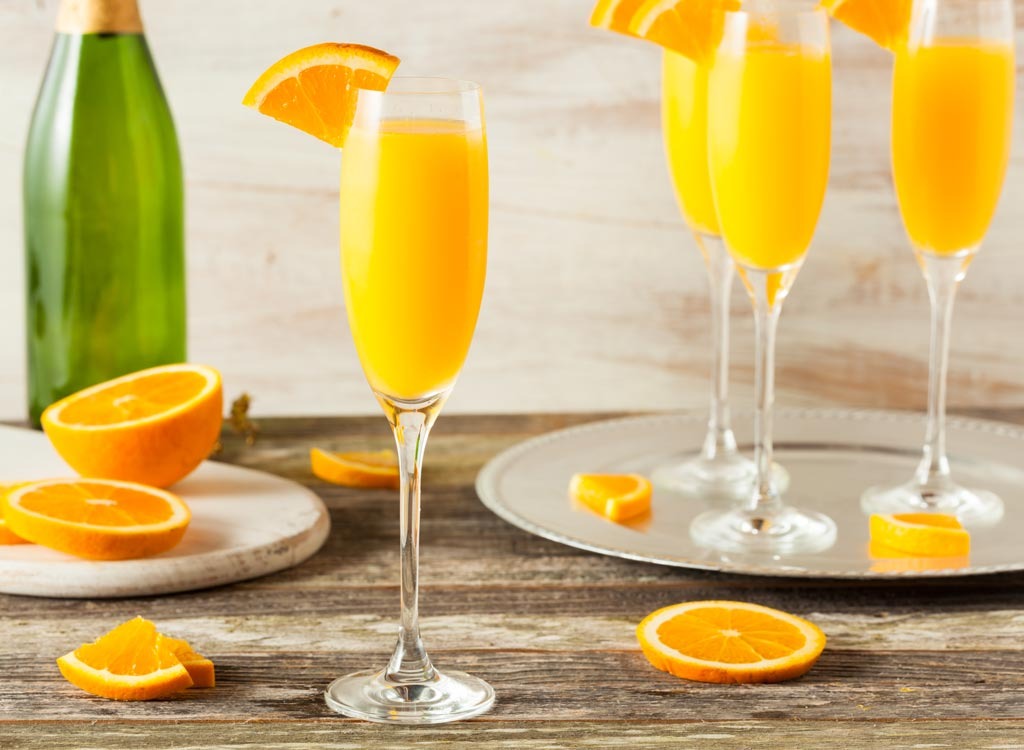
Another hangover myth is allowing yourself a little hair of the dog. You know, an early morning mimosa with brunch or what’s lovingly known as The Next Day Vodka Soda. Many people believe that a little more alcohol will actually cause relief symptoms, but it’s a hangover no-no.
“Do not have more drinks after you are hungover,” says Betancourt. “You confuse your body and have the potential to introduce greater amounts of Formaldehyde—a highly toxic substance converted from Methanol, which is found in dark alcohol—to your liver and obviously, prolonging the hangover relief process.”
Hitting the gym
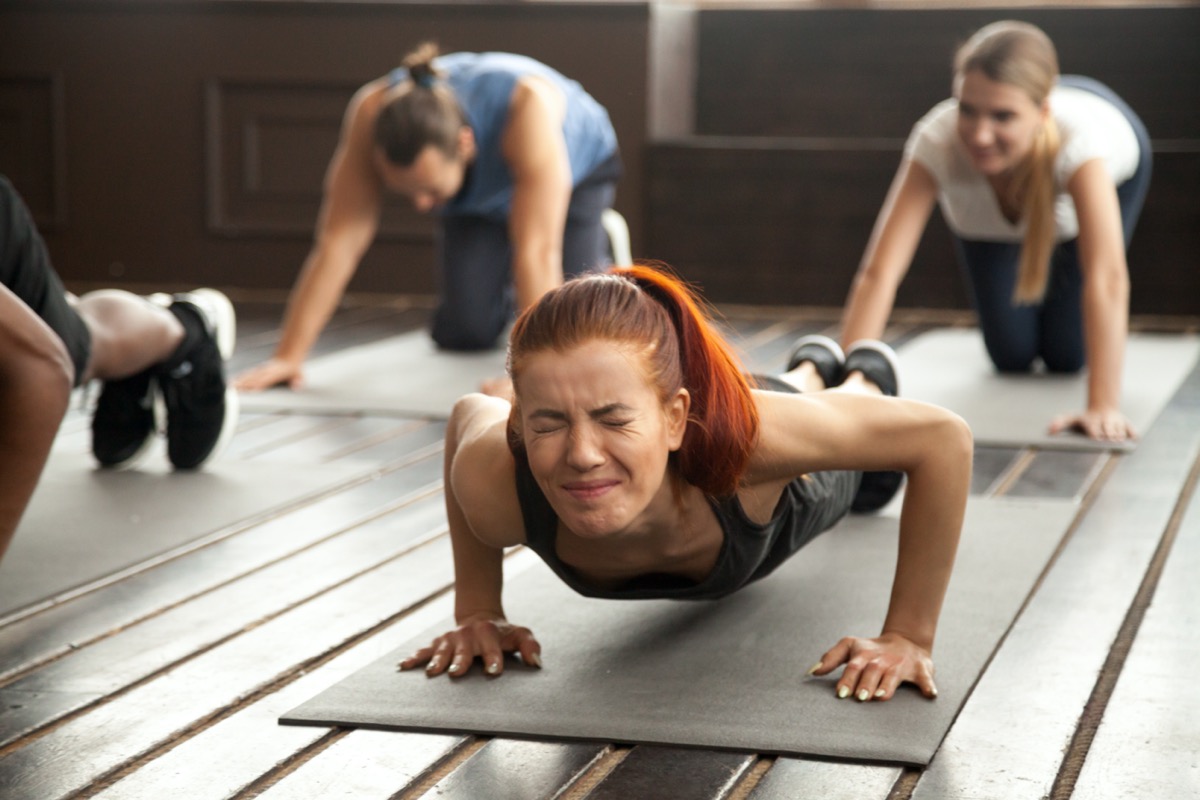
“You need to exercise to sweat out all those margarita toxins!” Do you have a friend that always says that? Don’t listen to her and don’t sign up for that early morning barre class with her. She is not looking out for your best interests.
“Do not try to ‘sweat it out,'” says Betancourt. “Alcohol acts as a diuretic, causing you to urinate more often, and reducing the amount of fluid retained in your body.”
This may not seem like a big deal, but exercising while you’re hungover can actually worsen dehydration.
“This causes dehydration, which 75 percent of Americans suffer from anyway, so trying to sweat it out will just exacerbate the dehydration and cause you to feel worse,” Betancourt says.
Laying on the couch all day
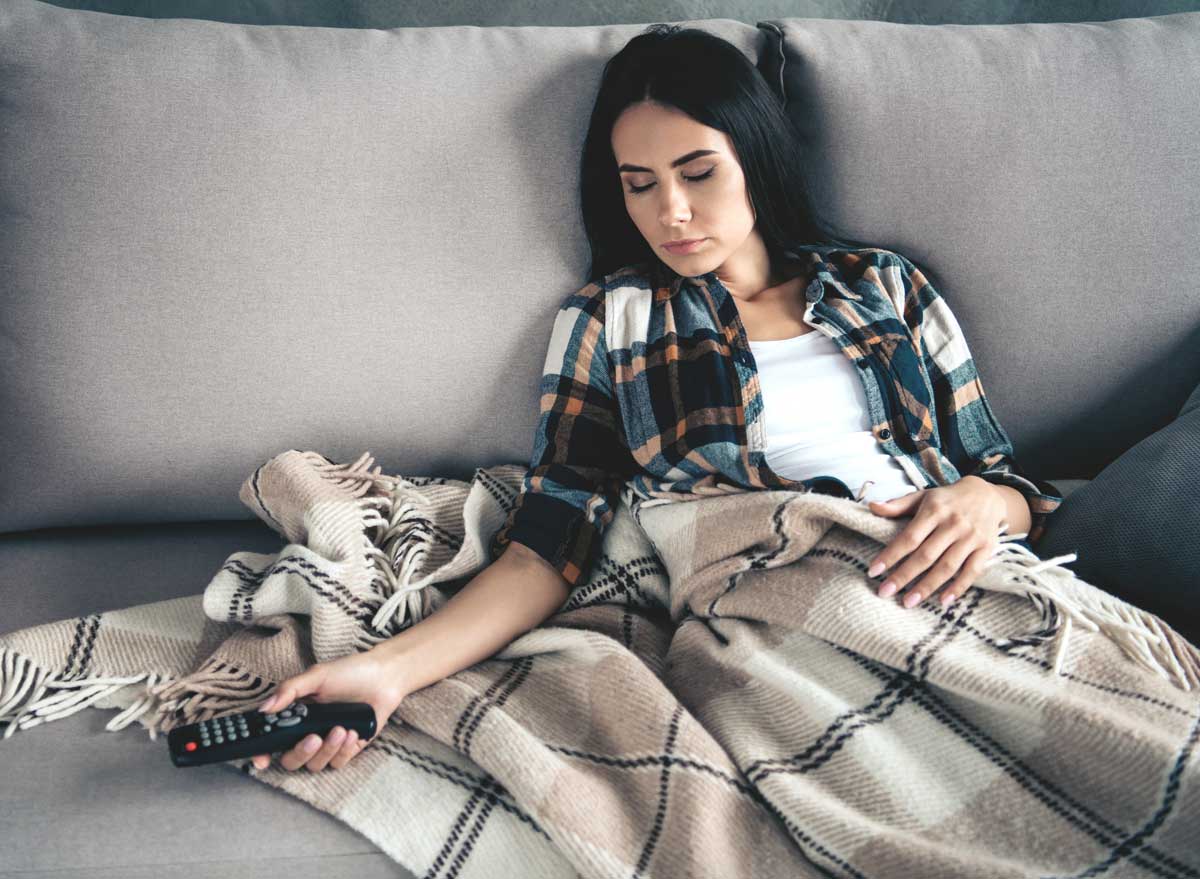
Trust us, sleep is great but laying on the couch all day long won’t really help you feel any better.
“Don’t lay around and feel sorry for yourself,” says certified health and wellness coach and nutritionist Lynell Ross. “If you can, drink water, plain or sparkling with some fizz, eat something light, then get out and take a walk in the fresh air. Just laying there can make you feel worse. Moving around can help your blood circulation and help your body burn off some of the alcohol messing with your blood sugar.”
Take that “moving around” bit with a grain of salt though. “Moving around” could mean something as simple as a walk outside. You don’t want to intensify your symptoms of dehydration.
Staying up until you’re sober
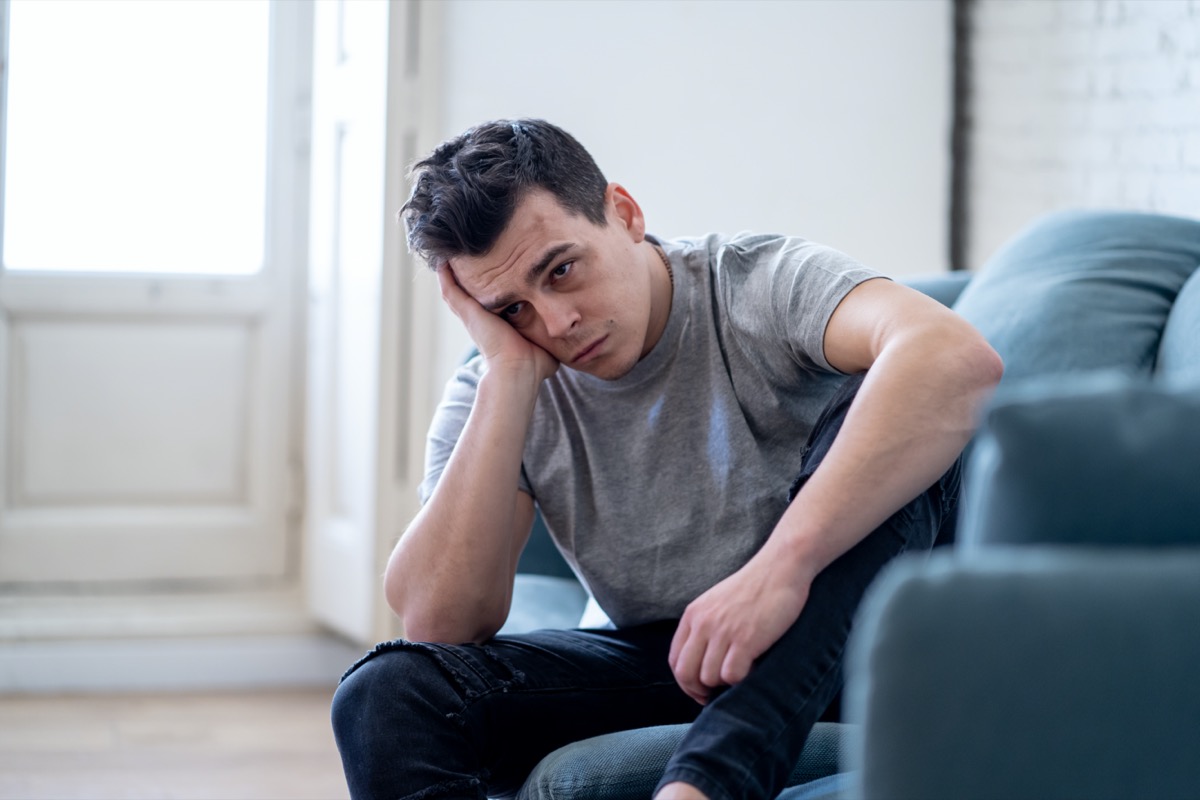
Fighting off sleep while you’re drunk is a sure-fire way to induce a hangover the next day. No, staying up will not cause you to sober up quicker, and it will certainly not stave off any hangover symptoms. In fact, it can make hangovers even worse.
“Do not try to stay awake. This will exacerbate the fatigue and impairment,” says Betancourt. “While REM sleep is significantly affected by alcohol, and restless will occur, sleeping nonetheless is an important step to getting through a hangover.”
Only relying on water
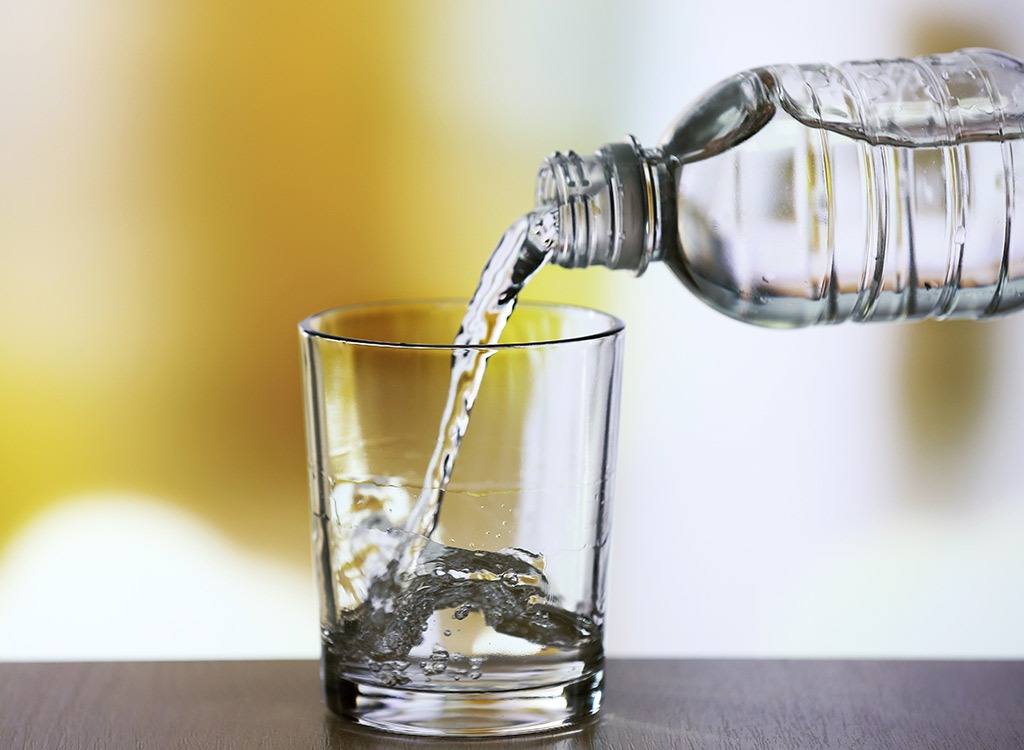
Drinking water is an effective way to counteract the symptoms of dehydration when you are hungover, but Betancourt recommends looking to other fluids that are high in electrolytes, as well.
“Remember, alcohol is a diuretic, which makes you urinate frequently. You lose more than just water,” Betancourt says. “Electrolytes are lost in the urination process, [too], and thus it is extremely important to replenish these using drinks containing electrolytes!”
But that recommendation also comes with a warning: Some drinks high in electrolytes can also have high levels of added sugar. Be wary of those, as sugar does not directly affect your blood alcohol level, but it can worsen your symptoms by causing a stomach ache and a sugar rush that later results in a crash.
Eating a burger, fries, a grilled cheese, and a milkshake
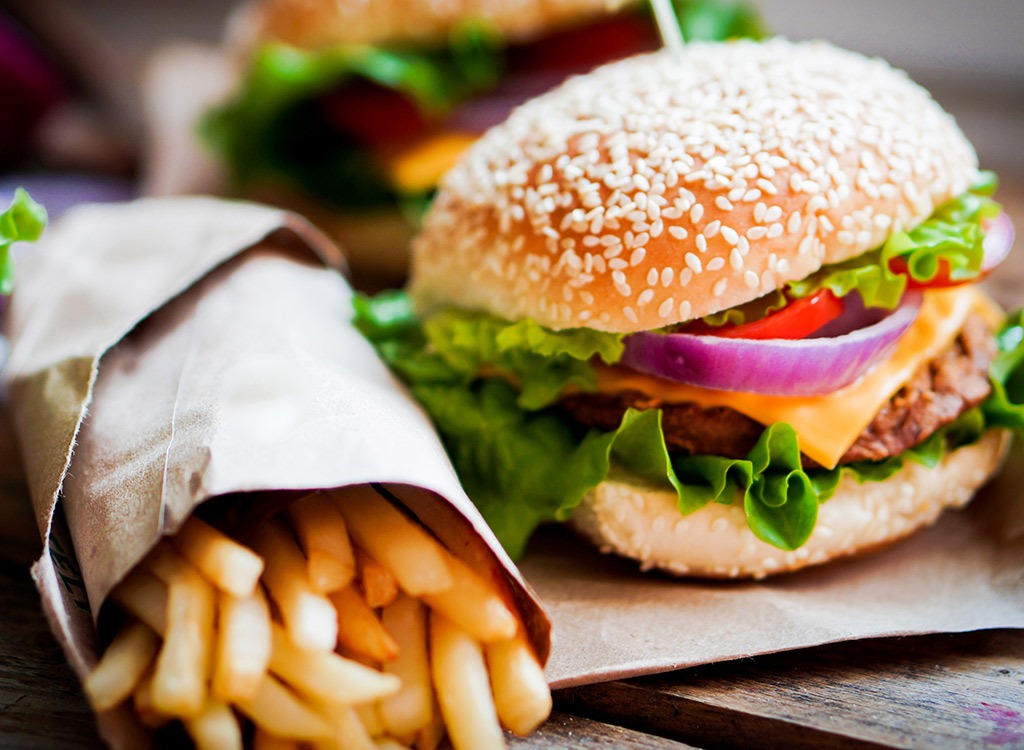
Aside from the negative effects that added sugar can have on your hangover, using greasy food to outrun your hangover isn’t a good idea all around.
“Stay away from greasy foods,” Betancourt says. “These types of foods would traditionally upset your stomach anyway, so if your stomach is already upset, you just compounded the two!”
Two better alternatives to greasy foods are crackers and toast. Alcohol lowers your blood sugar and disrupted sleep only lowers blood sugar levels further, so bland foods like toast and crackers can actually help boost your levels so that you feel better quicker.
“Low blood sugar is frequently associated with hangovers and low energy,” says Marie. “In addition, low blood sugar symptoms feel very similar to a hangover such as fatigue, nausea, lightheadedness, mood swings, weakness, dizziness, and confusion.”
Plus, both toast and crackers can help with any nausea you may be experiencing.
Not eating at all
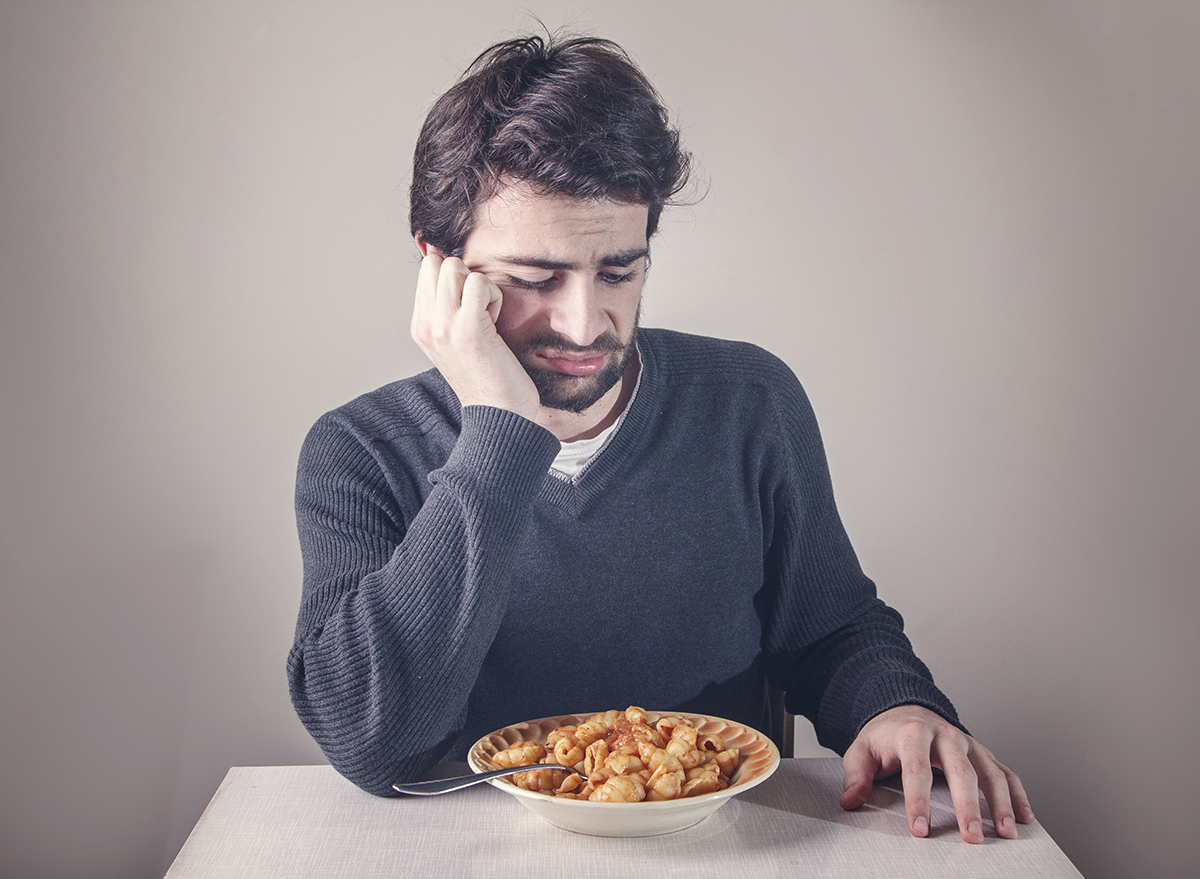
While greasy foods may not be the way to go, that’s not to say that you should eat nothing. Before drinking, while drinking, and after drinking, you should be intermittently eating or snacking on something nutritious. Drinking on a full stomach can help you bounce back quicker.
“While there are many cautions to take with [which] food to eat or not eat while drinking, eating nonetheless will help reduce the alcohol absorption rate,” says Betancourt. “While you may not feel well and may not want to eat, eating will give your body a substance to replace the alcohol.”
Drinking energy drinks
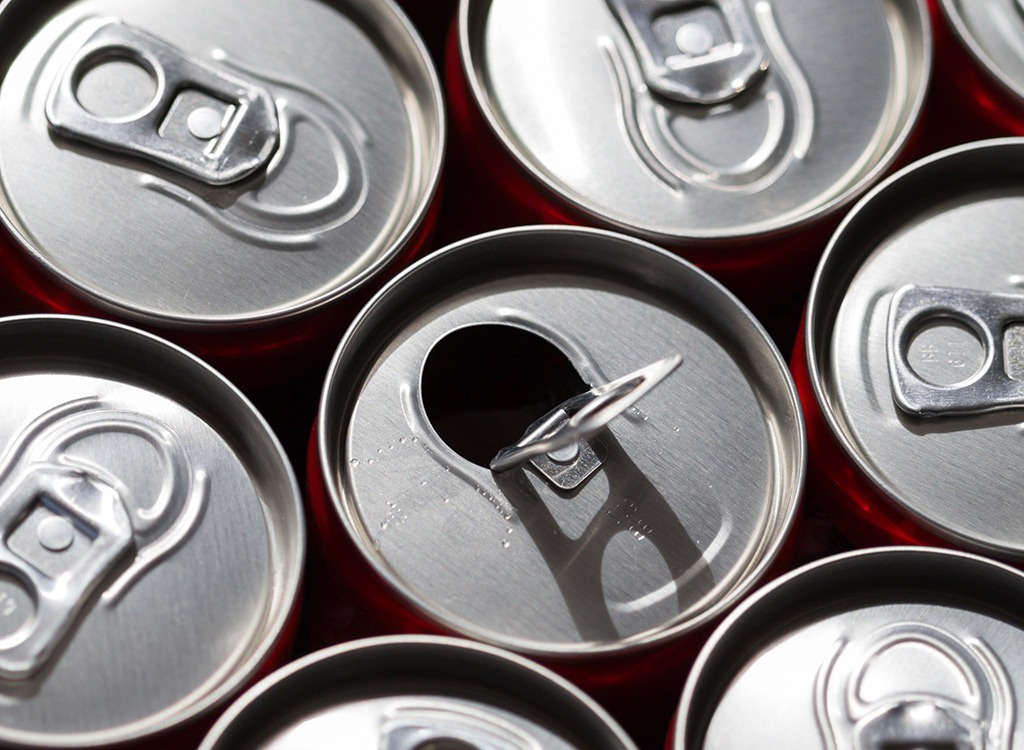
Caffeine isn’t just present in coffee, it’s also in many energy drinks, too.
“High energy drinks are loaded with caffeine and other junk,” says Ross. “If you have a hangover, you need to be hydrated with pure water, or drinks with electrolytes or coconut water, not things that dehydrate you and make you jittery.”
Taking a promotional “hangover cure”
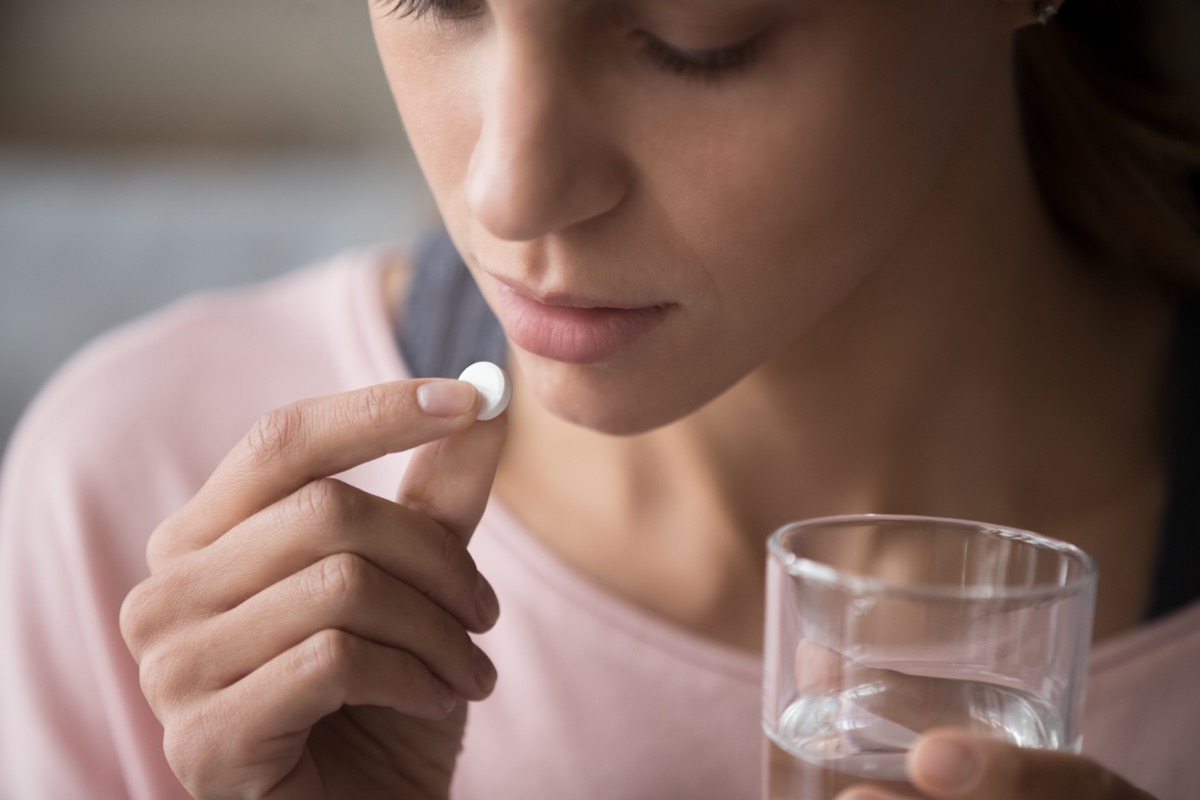
We’ve all seen them on Instagram ads or heard about them before—hangover cures are everywhere, in the form of pills, supplements, or even beverage mix-ins.
“Do not try to take some sort of ‘hangover cure’ medication orally,” says Betancourt. “These are all unsupported by research and can introduce unsuspected side effects.”
What you can do is pop a B6 vitamin prior to drinking or the next morning if your head is aching. Vitamin B6 has been linked to easing hangover symptoms. If you don’t have any B6, it can naturally be found in poultry, fish, liver, potatoes, and non-citrus fruits.
Nothing can beat a combination of electrolytes, water, and time. Oh, and some bland food!
Sitting in silence
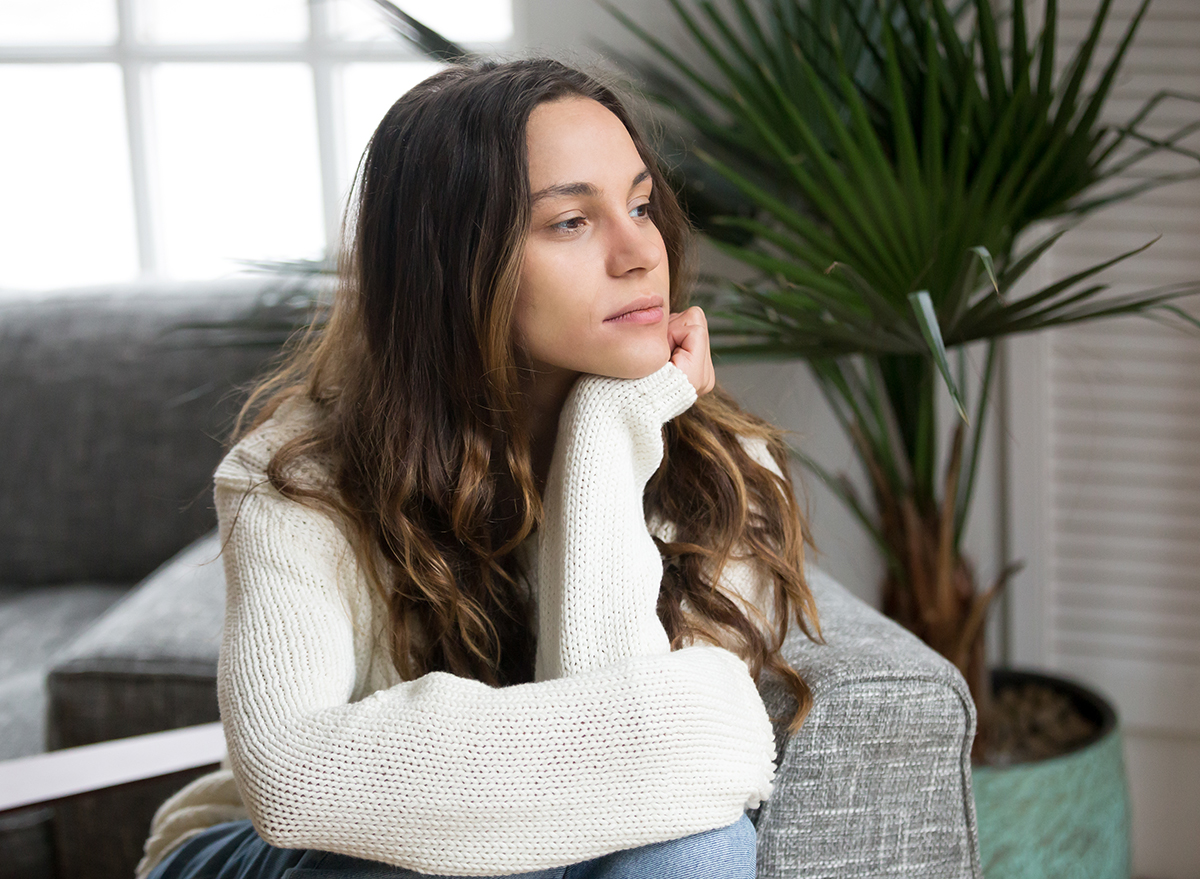
Yes, really. While hangovers can make you hyper-sensitive to light and sound, sitting in silence may not be as beneficial to people with hangovers as listening to music. In fact, listening to “pleasant music” that you personally enjoy has been shown has been shown to more efficiently relieve the pain associated with a hangover.
According to a study in the Journal of Acoustical Society of America, a listener’s “preferred” music can also help alleviate nausea.
If you’re not sure which playlist to make your hangover go-to, classical music is always a safe bet.
Eating high-sodium foods
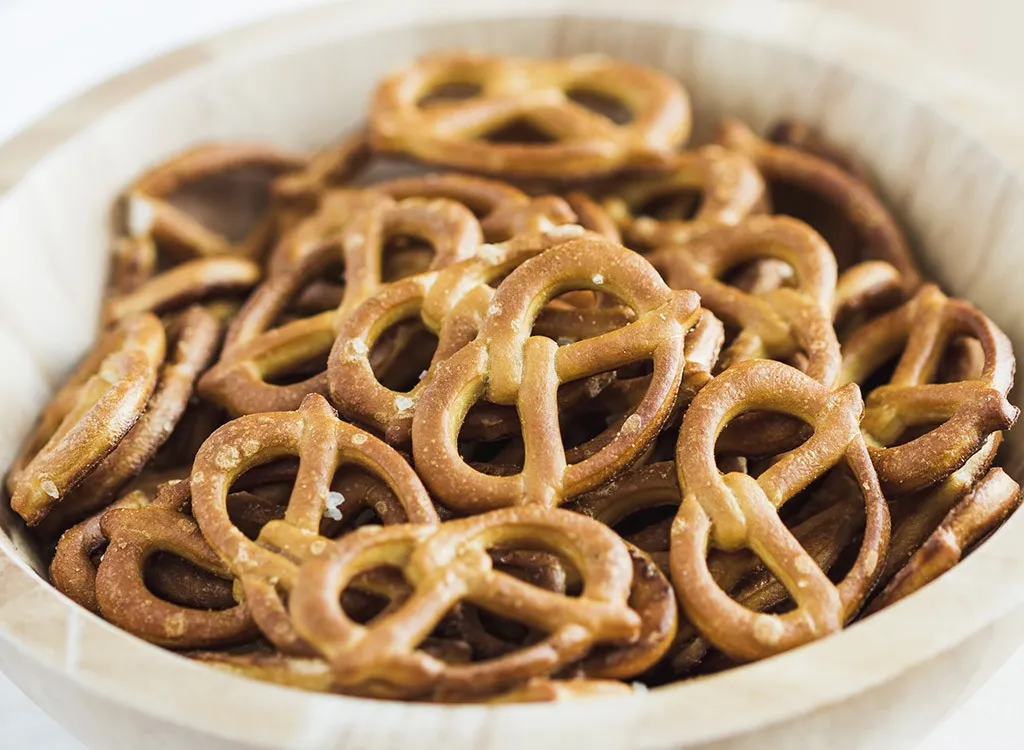
Greasy isn’t the only type of food you should avoid. Foods high in sodium can also worsen the symptoms of a hangover and fast.
“Snacks like pretzels, chips, olives, pickles and ham are high in sodium, so unless you plan on drinking plenty of water to correct all the fluid imbalance, it’s better to lay off the salty snacks until you feel better,” says Ross, who is also the founder of Zivadream.
Taking medications
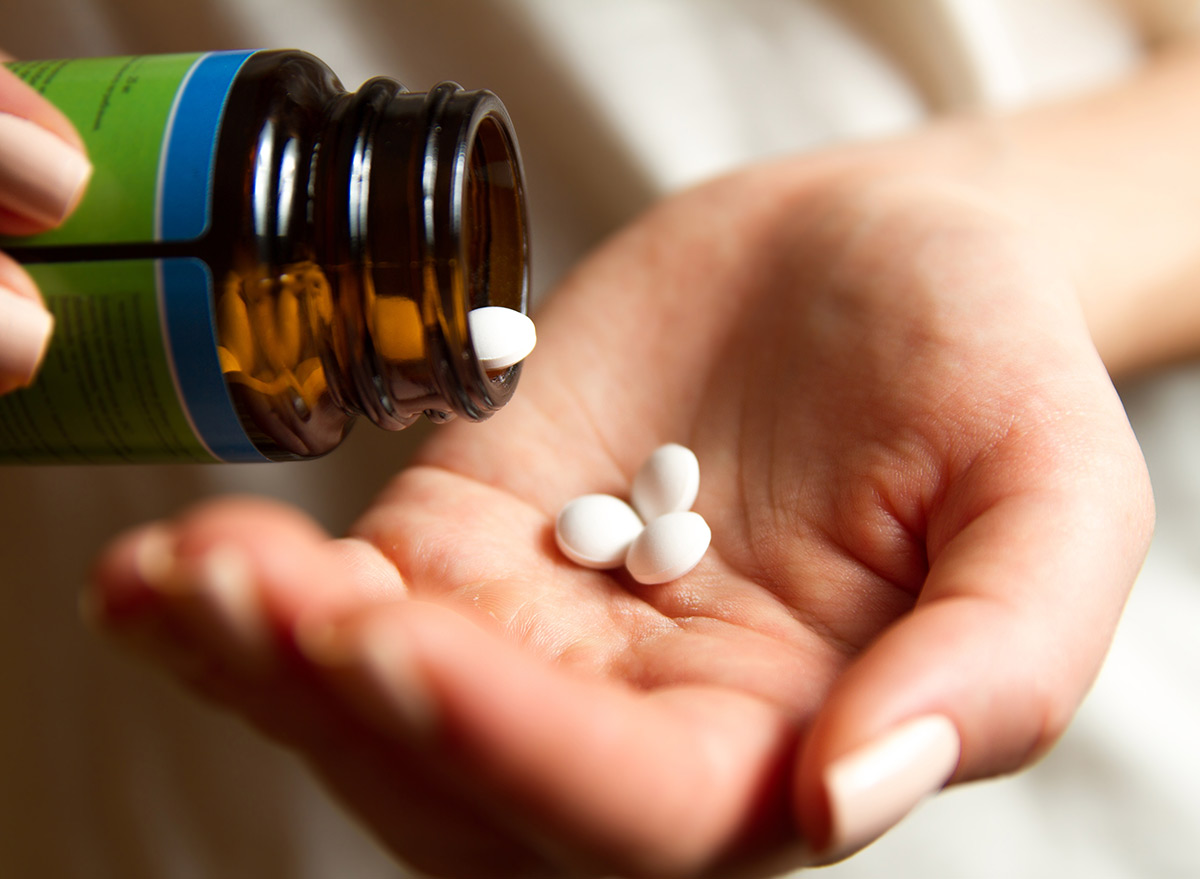
You already know that acetaminophen is a big no-no when you’re hungover because of the way it reacts with alcohol. But taking other medications that aren’t doctor-approved could also be detrimental to your hangover.
“Do not take any medications without consulting your doctor or reading the warning labels,” says Betancourt. “Some medications have adverse effects when mixed with alcohol, and the last thing you need to do is increase your symptoms.”
Some medications that may cause negative effects when mixed with alcohol include antidepressants, antibiotics, painkillers, ADHD medication, diabetes medication, cold and flu treatments, and more.
Eating or drinking anything high in citrus
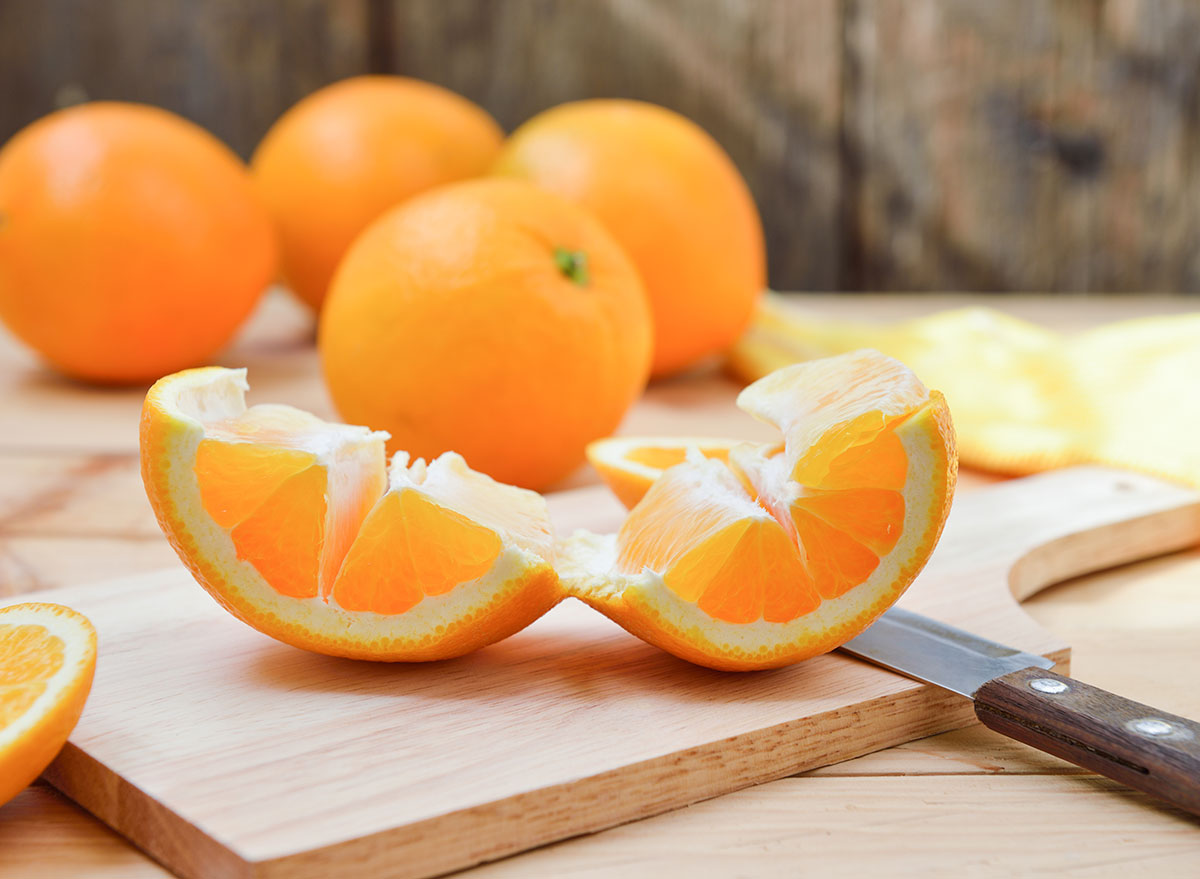
“Stay away from citrus—lemons, limes, oranges,” Betancourt says. “Citrus irritates the stomach lining and alcohol irritates the stomach lining… Get it?”
Relying on hangover-curing ice cream
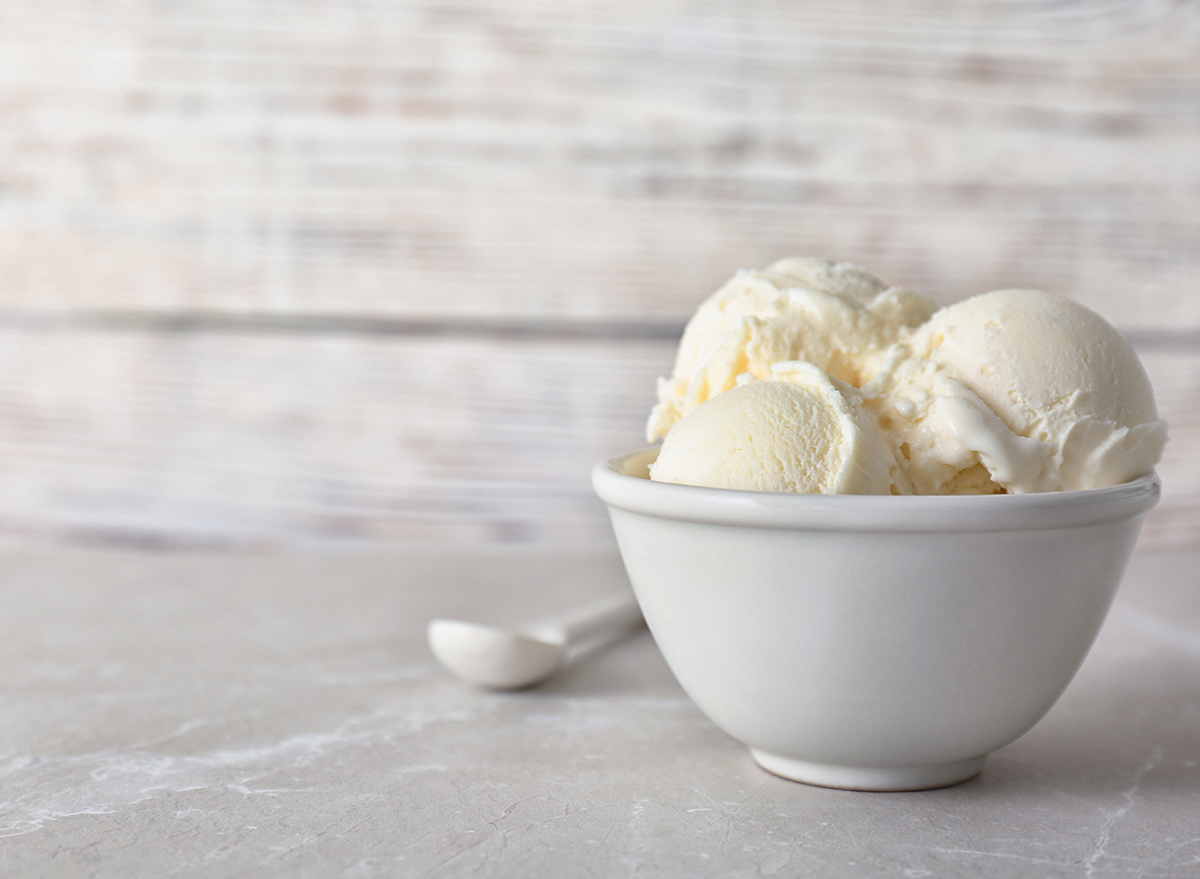
Um, what? Yes, some believe that an ice cream in Korea has been specifically designed to cure hangovers, thanks to the “miracle” ingredient of Hovenia dulcis—aka oriental raisin tree fruit juice.
While oriental raisin tree fruit juice has been used as a hangover cure for centuries, particularly in traditional Eastern medicine practices, it’s interesting that the ice cream is grapefruit-flavored.
As mentioned above, citrus can be notoriously bad for treating hangovers. However, the hangover ice cream—which is called Gyeondyo-bar—relies on the power of a small amount of Hovenia dulcis to get the hungover person chipper again.
Our take? If you get the opportunity, sure, try it. If it works, awesome, but we don’t recommend relying on grapefruit ice cream to cure your painful hangover symptoms on the reg.
Driving or operating machinery

We know, we know, but you have to drive your car home from your friend’s place where you slept last night. But Marie doesn’t recommend driving or operating machinery if you’re hungover from the night before.
“Although alcohol is typically out of your system about 12 hours after drinking, the effects of the hangover [can] last much longer than that. In fact, some of the symptoms such as headaches and fatigue reach their maximum after 24 hours,” says Marie. “A hangover can leave you feeling disoriented, uncoordinated, confused, anxious, fatigued, and nauseous.”
None of which are ideal for operating heavy machinery.
“In addition, studies also prove that hangovers inhibit your reaction time, even with a blood alcohol content level of zero or close to zero,” says Marie. “If you have somewhere to drive the next day, be mindful not to drink too much the night before.”
Also, there’s always Uber or Lyft.
